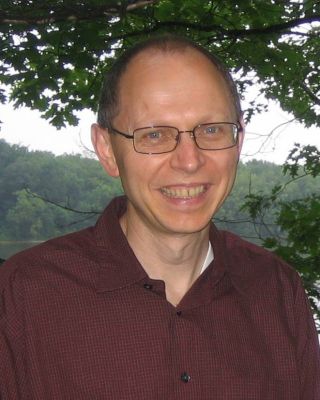Dale Kempf ’78

Dale discovered and developed new drugs for HIV and hepatitis C virus therapy. Currently he directs a program at AbbVie for the discovery of new drugs for neglected tropical diseases, tuberculosis and malaria.
Describe your career path from GC to your current work.
I began work as a medicinal chemist at Abbott Laboratories in 1984 (that part of Abbott became AbbVie in 2013). I began a chemistry program on HIV protease inhibitors, leading ultimately to two products used for HIV therapy, Norvir and Kaletra. Over the years his role expanded to direct various projects focused on new therapies for viral diseases (HIV, influenza, and ultimately hepatitis C virus).
http://www.abbvie.com/responsibility/leverage-expertise/home.html.
What is a typical work day like? I work at the intersection between chemistry, biology and other disciplines to plan and coordinate scientific studies that design and evaluate new compounds that have activity against various pathogens. I also serve on AbbVie’s Medicinal Chemistry Leadership Team, evaluate new therapeutic opportunities in viral diseases and serve on Scientific Advisory Boards for some of our not-for-profit partners.
What skills are important in your work? First and foremost, a broad foundation in drug discovery and development, gleaned through many years of experience. Being able to critically evaluate laboratory results is very important. Second, good communication and interpersonal skills are essential. All of my research is highly collaborative and would not progress without constant communication.
What knowledge or skills do you use that didn’t come from your chemistry courses at GC, and where/how did you learn those? My graduate and postdoctoral studies focused on aspects of synthetic organic chemistry, and I learned broad skills in the synthesis of new organic molecules. These synthetic chemistry skills were the foundation for becoming a medicinal chemist, which involves not only synthesizing new compounds as potential drugs, but also interpreting various biological data in order to design new structures with improved properties.
What do you like about your work? The thing I like best is that I am always learning new science. Second, I like being able to apply science to problems that affect people’s lives. And third, I greatly enjoy working alongside many other scientists in teams with a common goal. Most of what I learn I learn from my colleagues.
What career advice do you have for GC students currently majoring in chemistry? Pursue your scientific education as far as you are able. The opportunities to pursue interesting science throughout your life expand exponentially as you move from Bachelor’s, Master’s and Ph.D. degrees; and postdoctoral work opens that up further. Be flexible in following your scientific interests: a chemistry undergraduate major can lead to careers in many different fields. The most important training you are receiving is the ability for critical scientific thinking. Finally, be prepared to work very hard, but working hard on something you love doesn’t seem like work.




